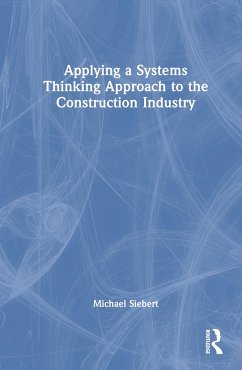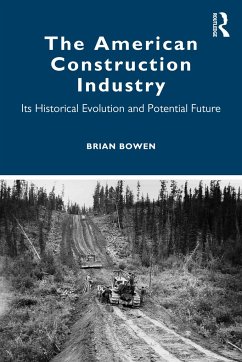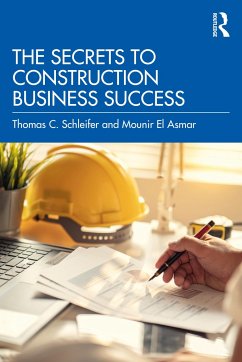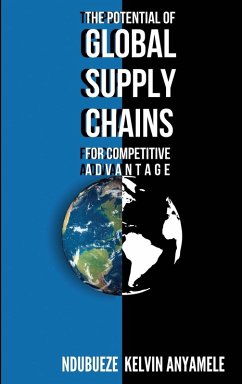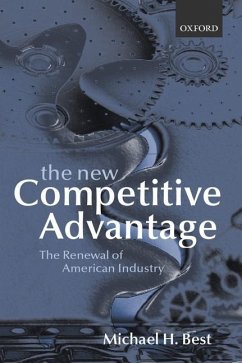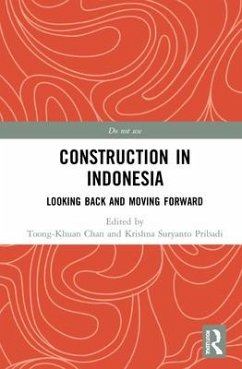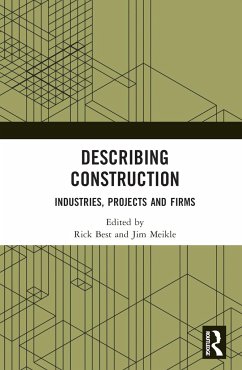
Developing the Competitive Advantage of Indigenous Construction Firms
Versandkostenfrei!
Versandfertig in 1-2 Wochen

PAYBACK Punkte
31 °P sammeln!




This book takes a pragmatic approach to developing the competitive advantage of indigenous construction firms in the Global South, using Ghana as a case study.
Matthew Kwaw Somiah is a civil engineer by profession and a Senior Lecturer at the Faculty of Built and Natural Environment, Takoradi Technical University (TTU), Ghana. Dr Somiah is an academic with extensive knowledge in civil engineering practice, research, training and teaching. He has worked with many construction firms in Ghana as Construction Manager. He has been a Lead Researcher for CoST Infrastructure Transparency International in Ghana. He shares research interest in Strategic Management, Construction Entrepreneurship, Land-use Planning and Housing delivery, and Construction Education. He currently serves as the Chair for Research and Development at the Faculty. Clinton Ohis Aigbavboa is Professor at the Department of Construction Management and Quantity Surveying, University of Johannesburg, South Africa. He worked as a quantity surveyor on several infrastructural projects, both in Nigeria and in South Africa. Prof. Aigbavboa is currently the Chair of Sustainable Human Settlement and Construction Research Centre at the University of Johannesburg. He is currently the editor of the Journal of Construction Project Management and Innovation (accredited by the DoHET) and has received national and international recognition in his field of research. Wellington D. Thwala is Professor at the Department of Construction Management and Quantity Surveying, University of Johannesburg, South Africa. Currently, he is the Chair of SARChI in Sustainable Construction Management and Leadership in the Built Environment, FEBE, University of Johannesburg, South Africa. Prof. Thwala has extensive experience of providing consultancy for project leadership and management of construction projects and teaching project management subjects at the postgraduate level. He has an extensive industry experience with research focus on sustainable construction, leadership, and project management. He is the Editor-in-Chief of International Journal of Construction Project Management and Innovation and serves as an editorial board member to various reputable international journals.
Produktdetails
- Verlag: Routledge
- Seitenzahl: 224
- Erscheinungstermin: 26. August 2024
- Englisch
- Abmessung: 234mm x 156mm x 12mm
- Gewicht: 348g
- ISBN-13: 9780367722685
- ISBN-10: 0367722682
- Artikelnr.: 71230759
Herstellerkennzeichnung
Libri GmbH
Europaallee 1
36244 Bad Hersfeld
gpsr@libri.de
Für dieses Produkt wurde noch keine Bewertung abgegeben. Wir würden uns sehr freuen, wenn du die erste Bewertung schreibst!
Eine Bewertung schreiben
Eine Bewertung schreiben
Andere Kunden interessierten sich für





